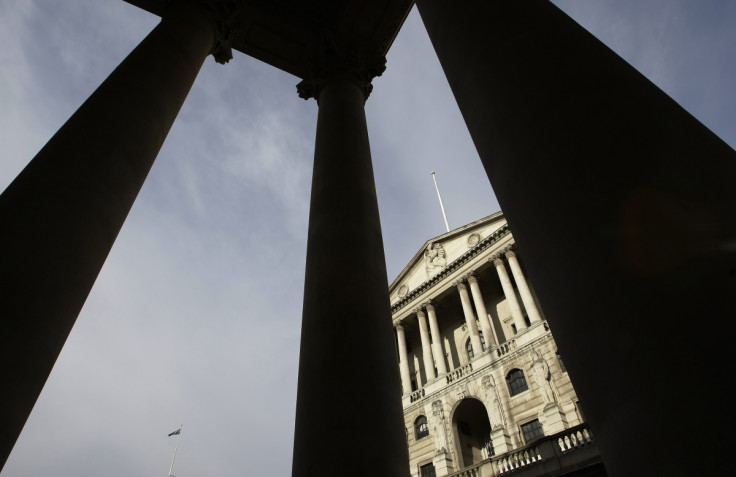Bank of England: Ailing Eurozone Threatens UK Economic Recovery

The stalled economic recovery in the eurozone poses a major risk to the UK unless it gets moving again, according to the Bank of England, while raising further consternation regards the timing of a rise in interest rates.
Rate-setters on the central bank's monetary policy committee (MPC) raised concern about the eurozone at their September meeting after the currency bloc saw no GDP growth in the second quarter of 2014 and inflation is teetering above zero as bank lending tumbles.
Britain's GDP is set to grow by more than 3% over the same year, making it the fastest growing Western economy. But on the continent the struggle continues, with France stagnating, Italy falling back into recession and even powerhouse Germany showing signs of economic weakness.
"The accumulating evidence of the weakness in the euro area had been the most significant development during the month," said the minutes from the MPC meeting, where policymakers voted 7-2 to hold the base rate at its record-low of 0.5%, with dissenters wanting a 0.25% rise.
"Although the direct impact on the United Kingdom of the current phase of disappointing activity might be relatively modest, a prolonged period of poor growth and very low inflation could have a larger impact if it led once again to uncertainty about the sustainability of euro-area public and external debt.
"This could damage confidence and disrupt financial markets, and, as a result, the downside risks to UK growth in the medium term had probably increased."
Europe is the UK's largest trading partner, accounting for around half of all trade. Eurozone countries are still battling through tough austerity programmes, which is biting down on domestic demand in each of the 18 member states.
And financial sector restructuring in the aftermath of the crisis is causing banks to tighten their lending, meaning many firms cannot get access to the credit they need to invest in jobs and expansion, in turn weighing down on wider eurozone growth and keeping unemployment high.
The European Central Bank (ECB) has increased its stimulus for bank lending to the tune of hundreds of billions of euros, as well as slashed interest rates, in a desperate bid to boost the money supply and stave off the threat of deflation.
Compounding the eurozone's concerns is the tit-for-tat sanctions battle between Europe and Russia over the latter's military involvement in Ukraine. Europe relies heavily on Russian gas imports for its energy supply and some countries, such as Germany, do lots of other trade with Russia too.
The trouble in Europe will give policymakers more to think about on hiking interest rates. They are keen to act soon – in spring 2015, according to market expectations – in order to avoid any credit bubbles forming as the recovery strengthens. And they want to give savers some respite after years of weak returns.
But if they raise rates too soon then they risk choking off the economic recovery by pushing up debt repayments and making credit more expensive for consumers and small firms before they can afford it, a particular problem if there is another eurozone downturn waiting around the corner.
© Copyright IBTimes 2025. All rights reserved.






















